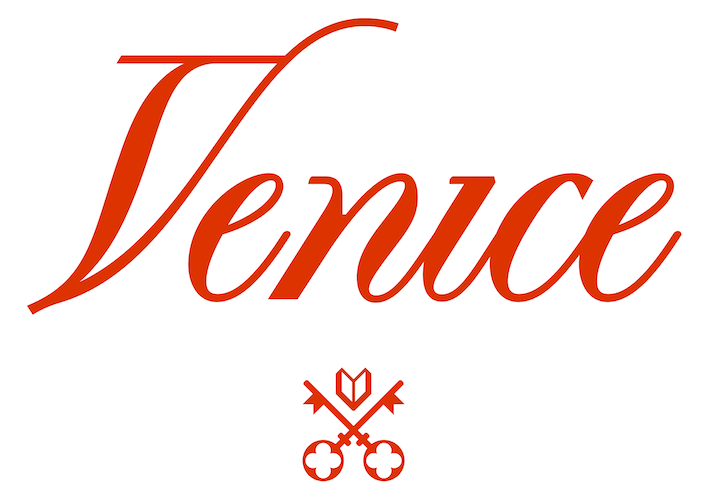Brave Search API
The only search API with its own Web index at scale. Truly independent, lightning-fast, and built to power AI apps.
Pricing
Base AI
$5.00 per 1,000 requests- Up to 20 queries/second
- Up to 20M queries/month
- Rights to use in AI apps
Pro AI
$9.00 per 1,000 requests- Up to 50 queries/second
- Unlimited queries/month
- Rights to use in AI apps
Enterprise
Custom Need higher limits? Reach out to inquire about bespoke enterprise solutions. Contact usBuild with the power of the web
Power agentic search
Chatbots, coding assistants, and AI-search engines all need real-time data to reduce hallucinations and ground their responses with multiple sources. The Brave Search API excels in RAG pipelines, and it’s the leading search tool for applications that use Claude MCP.
Train foundation models
The open Web is a critical source of training data for today’s state-of-the-art AI models. With up to five snippets from over 30 billion pages, the Brave Search API is the best blend of scale, quality, and cost.
Create search-enabled tools
Build comprehensive company profiles in CRM platforms, gather citations for ed-tech apps, or fetch the latest news for a stock trading assistant. Thousands of teams rely on the Brave Search API to connect their apps to the Web.



Trusted by industry leaders











The Brave Search API provides accurate search results for our academic citation services. It delivers high-quality data at a reasonable price, and with intuitive data structuring. Its speed and precision have been crucial.
Key features
-
World-class quality
In blinded testing, Brave Search performs on par with—or better than—incumbent search giants.
-
Specialized endpoints
Adapt results with different specialized endpoints, including local, images, AI summaries, and more.
-
Comprehensive and fresh
Brave’s index includes over 30 billion pages, kept fresh by over 100 million page updates every day.
-
Search Goggles
Discard domains or re-rank results for better control of the response to your query via the Brave Search Goggles feature.
-
Extra snippets
Get up to five snippets picked in real time to maximize contextual relevance to a search.
-
Schema-enriched results
Get additional formatted data for popular formats like movie reviews and wikis.
1#!/usr/bin/env python
2
3import requests
4
5print(
6 requests.get(
7 "https://api.search.brave.com/res/v1/web/search",
8 headers={
9 "X-Subscription-Token": "<BRAVE_SEARCH_API_KEY>",
10 },
11 params={
12 "q": "greek restaurants in san francisco",
13 "count": 20,
14 "country": "us",
15 "search_lang": "en",
16 },
17 ).json()
18) 1{
2 "type": "search",
3 "web": {
4 "type": "search",
5 "results": [
6 {
7 "title": "THE 10 BEST Greek Restaurants in San Francisco (Updated 2025)",
8 "url": "https://www.tripadvisor.com/Restaurants-g60713-c23-San_Francisco_California.html",
9 "is_source_local": false,
10 "is_source_both": false,
11 "description": "Best <strong>Greek</strong> <strong>Restaurants</strong> <strong>in</strong> <strong>San</strong> <strong>Francisco</strong>, California: Find Tripadvisor traveller reviews of <strong>San</strong> <strong>Francisco</strong> <strong>Greek</strong> <strong>restaurants</strong> and search by price, location, and more.",
12 "profile": {
13 "name": "Tripadvisor",
14 "url": "https://www.tripadvisor.com/Restaurants-g60713-c23-San_Francisco_California.html",
15 "long_name": "tripadvisor.com",
16 "img": "https://imgs.search.brave.com/OEuNbeVBPVl2AlxDmpKDNcYk4RuERMK4gTlMyVzbpSw/rs:fit:32:32:1:0/g:ce/aHR0cDovL2Zhdmlj/b25zLnNlYXJjaC5i/cmF2ZS5jb20vaWNv/bnMvZjQ1MjliOWZi/NmMxZWRhYmY2MmYy/MmNjMmM0ZWM3MTA4/ZTUxM2E1M2JlMzgx/ODM0N2E2NzY5OTJk/YjQwNmNlNi93d3cu/dHJpcGFkdmlzb3Iu/Y29tLw"
17 }…
Enterprise ready
-
SOC 2 attested
The Brave Search API is SOC 2 Type II attested, with its strict security and privacy controls independently verified by a third-party auditor. Visit our Trust Center to learn more.
-
High capacity
Engineered for large-scale deployments, the Brave Search API can handle the capacity needs of even the largest global enterprises.
-
Low latency
Market-leading low latencies to support your individual use cases and workflows.
FAQ
What is the Brave Search API?
The Brave Search API is a developer tool for building applications with data from the Web. It’s powered by Brave’s independent Web index, the same index that powers Brave Search. It’s commonly used in traditional search engine products, AI search engines, AI training, and agentic (autonomous AI) search.
Why is a credit card required to subscribe to a free plan?
The credit card requirement serves as an anti-fraud measure to protect Brave from bad actors who want to abuse our API. For free plans, the card is only used to confirm your identity and will not be charged.
What other web search API options can the Brave Search API compliment or replace?
The Brave Search API can replace several competing options that may have smaller indexes (Tavily or Exa), higher latencies (SerpAPI or Serper), or more limited access (Google and Bing). It can also serve as a complement to localized API options like Baidu, Naver, Yahoo, and Yandex. The Brave Search API is powered by Brave Search, a completely independent index of the Web, which is tuned to reduce SEO spam and increase quality and recency of results.
Where does the data come from?
Every search engine that has its own index necessarily has its own Web crawler. The Brave Search crawler does not advertise a differentiated user-agent because we must avoid discrimination from websites that allow only Google to crawl them. However, if a domain or page is not crawlable by any search engine (e.g. because it has a noindex tag), or if it is not crawlable by googlebot, then Brave Search’s bot will not crawl it either.
Brave Search is also built on more than just Web crawlers: its privacy-preserving Web Discovery Project (WDP) allows Brave browser users to opt in and contribute data about searches and webpage visits. This level of voluntary human contribution to an index is unique in the world of API search and training data. WDP uses several privacy safeguards to prevent Brave from knowing who is contributing what, and the code is open-source for auditing by anyone.
What are the key benefits of the Brave Search API?
The Brave Search API offers world-class search engine capabilities at a significantly lower cost to other Search and AI Search APIs. The data is fresh, high-quality, and scales with small to large businesses. The Brave Search API is provisioned to manage thousands of requests per second (and growing) and offers customers the speed and reliability necessary for applications with millions of users around the world.
Importantly, the Brave Search API is not a scraper that simply uses bots to query Google or Bing and repackage their results. Instead, it’s our own independent index of the Web packaged with our own ranking models.
Does the Brave Search API surface recent events?
Yes. Brave Search fetches millions of webpages every day, offering extensive coverage of recent events around the world.
Can I store results retrieved from the Brave Search API?
If you would like to store the API results in part or whole (for example, to train or tune an LLM), you will need to subscribe to a plan that explicitly grants storage rights. Plans with storage rights grant special permissions which are not covered in our general Terms of Service.
What about copyright?
Brave Search API offers a ranked list of webpages that are publicly available; this list also includes information to support why the webpage is relevant to the query (for instance, via query-dependent snippets based on the content of the webpage).
The Brave Search API does not grant any rights to third-party content such as webpages. Customers who access URLs displayed in the Brave Search API must ensure their access to those webpages complies with the copyright terms of the page publishers.
Does the Brave Search API follow security and privacy best practices?
Yes. For more info, please check out our help page about API privacy and security.






